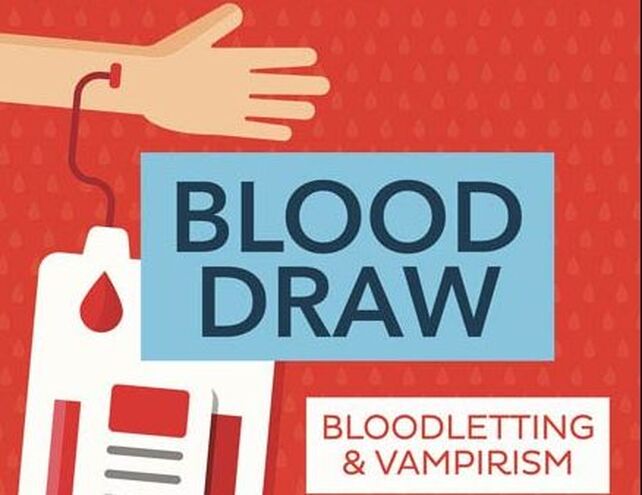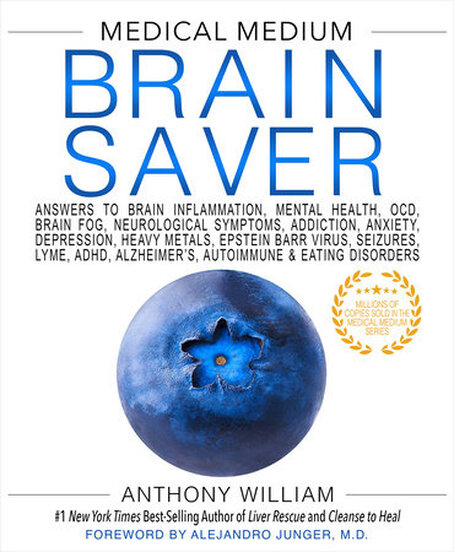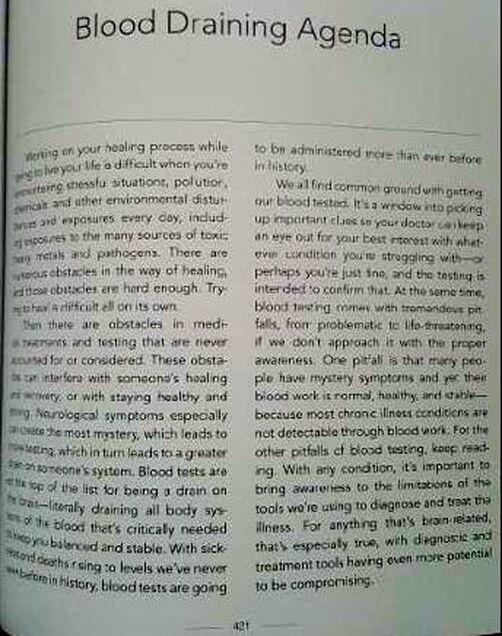🌸
Blood Drawing
🌸
Blood Drawing
🌸
🌸
Many people battling symptoms, conditions, or chronic illness are subjected to routine blood draws and tests. How can these routine blood draws affect the body? How can you protect yourself before a blood draw, test, or donation?
In the blood draw podcast episode, I uncover the truth behind blood draws, why the system is broken and outdated, how blood draws can affect the immune system, and the importance of protecting yourself.
The Immune System
In this day and age, one of the most important things we have is our immune system, and it is more critical now than ever that our immune systems are strong. When blood is being removed from the body, it is necessary to understand that a portion of the immune system is also being removed.
Our blood contains white blood cells that are responsible for keeping the body strong and defending against sickness. When blood is drawn from the body, we lose many of these precious blood cells and are left with a lowered immune system and weakened defense mechanisms.
When an individual is sick with a symptom, condition, or chronic illness, they need their immune system strong. When blood is constantly being drawn for testing, this can potentially weaken the individual and slowly worsen their condition. As their condition worsens, red flags are raised for their healthcare provider and the recommendation may be to draw even more blood to find out why this person is declining.
This can develop into a vicious and never-ending cycle for some and become a revolving door of blood removal, leaving the body unable to recoup fast enough. Meanwhile, the very real cause of this person’s chronic illness is getting stronger and stronger, because the immune system isn’t there at its full potential to defend against the real culprits of chronic illness. The Epstein-Barr Virus is one of these culprits.
Patients battling cancer that need an immune system at its best get large amounts of blood drawn on a regular basis, which does not allow their immune system to recuperate quick enough between blood draws. White blood cells can devour cancer cells and drawing blood diminishes those white blood cells.
It is crucial to know how to protect yourself and how best to support your body and immune system. Learn more in this blood draw podcast episode.
Blood Draws and Testing
When blood is drawn, unneeded waste can occur. Systems are set in place to remove certain amounts of blood for each type of test, regardless of the circumstances, and without consideration of what someone’s condition may be, or other variables in their life, including hardships they may be going through, what kind of resources they have, if their diet is providing enough nutrients to keep their immune system strong, or even when their last blood draw occurred.
Considerations should be taken about body weight, size, and gender of the individual before blood is drawn.
For example, it is common for the amount of blood drawn from a healthy 200 pound male to be the same as the amount drawn from a 100 pound, chronically ill female, without the consideration that this 100 pound female has less blood and a chronic condition that requires her immune system to be strong.
This is one of the greatest mistakes happening in modern medicine. Learn more in this blood draw podcast episode.
Donating Blood
Donating blood can be a concern and affect the body in adverse ways, which is why it is important to know how to protect yourself, your immune system, and your wellbeing, while also helping others get the blood they need for lifesaving medicine. Learn more in this blood draw podcast episode.
How To Support Your Body
I believe in getting blood tested and in many occasions, doing so can be lifesaving. There are good doctors reading between the lines on blood tests and learning how to navigate and offer the best treatments for their patients.
Balance is important and while doctors tend to order as many tests as they can with one blood draw, dividing the tests can allow less blood to be taken at once, allowing the patient to come back more often, and lessening the strain blood draws can have on their immune system. Learn more about what to ask for from your doctor when it comes to getting your blood tested in this (blood draw podcast episode).
Many people battling a chronic illness are up against routine blood draws and are not given any tools or recommendations for preparing for these blood draws.
Incorporating certain fruits, leafy greens, and herbs, as well as in my opinion, the highest-quality supplements,
such as micro-c,
liquid zinc sulfate,
liquid B12 with methylcobalamin and adenosylcobalamin,
and magnesium glycinate,
can help support, protect, and prepare the body for blood draws and recovery afterward.
Learn more about how to help the body stay strong before and after a blood draw, and protect the immune system in this blood draw podcast episode.
In This Podcast Episode:
Moving Forward
Blood testing is not a definitive, accurate, one-hundred percent clear method of providing somebody with answers for why they’re chronically ill, but it’s still important and lifesaving.
Knowing the truth about blood draws and how to protect yourself, what questions to ask your doctor, and ways to support your body will be critical tools on your path to health and wellness.
In the blood draw podcast episode, I uncover the truth behind blood draws, why the system is broken and outdated, how blood draws can affect the immune system, and the importance of protecting yourself.
The Immune System
In this day and age, one of the most important things we have is our immune system, and it is more critical now than ever that our immune systems are strong. When blood is being removed from the body, it is necessary to understand that a portion of the immune system is also being removed.
Our blood contains white blood cells that are responsible for keeping the body strong and defending against sickness. When blood is drawn from the body, we lose many of these precious blood cells and are left with a lowered immune system and weakened defense mechanisms.
When an individual is sick with a symptom, condition, or chronic illness, they need their immune system strong. When blood is constantly being drawn for testing, this can potentially weaken the individual and slowly worsen their condition. As their condition worsens, red flags are raised for their healthcare provider and the recommendation may be to draw even more blood to find out why this person is declining.
This can develop into a vicious and never-ending cycle for some and become a revolving door of blood removal, leaving the body unable to recoup fast enough. Meanwhile, the very real cause of this person’s chronic illness is getting stronger and stronger, because the immune system isn’t there at its full potential to defend against the real culprits of chronic illness. The Epstein-Barr Virus is one of these culprits.
Patients battling cancer that need an immune system at its best get large amounts of blood drawn on a regular basis, which does not allow their immune system to recuperate quick enough between blood draws. White blood cells can devour cancer cells and drawing blood diminishes those white blood cells.
It is crucial to know how to protect yourself and how best to support your body and immune system. Learn more in this blood draw podcast episode.
Blood Draws and Testing
When blood is drawn, unneeded waste can occur. Systems are set in place to remove certain amounts of blood for each type of test, regardless of the circumstances, and without consideration of what someone’s condition may be, or other variables in their life, including hardships they may be going through, what kind of resources they have, if their diet is providing enough nutrients to keep their immune system strong, or even when their last blood draw occurred.
Considerations should be taken about body weight, size, and gender of the individual before blood is drawn.
For example, it is common for the amount of blood drawn from a healthy 200 pound male to be the same as the amount drawn from a 100 pound, chronically ill female, without the consideration that this 100 pound female has less blood and a chronic condition that requires her immune system to be strong.
This is one of the greatest mistakes happening in modern medicine. Learn more in this blood draw podcast episode.
Donating Blood
Donating blood can be a concern and affect the body in adverse ways, which is why it is important to know how to protect yourself, your immune system, and your wellbeing, while also helping others get the blood they need for lifesaving medicine. Learn more in this blood draw podcast episode.
How To Support Your Body
I believe in getting blood tested and in many occasions, doing so can be lifesaving. There are good doctors reading between the lines on blood tests and learning how to navigate and offer the best treatments for their patients.
Balance is important and while doctors tend to order as many tests as they can with one blood draw, dividing the tests can allow less blood to be taken at once, allowing the patient to come back more often, and lessening the strain blood draws can have on their immune system. Learn more about what to ask for from your doctor when it comes to getting your blood tested in this (blood draw podcast episode).
Many people battling a chronic illness are up against routine blood draws and are not given any tools or recommendations for preparing for these blood draws.
Incorporating certain fruits, leafy greens, and herbs, as well as in my opinion, the highest-quality supplements,
such as micro-c,
liquid zinc sulfate,
liquid B12 with methylcobalamin and adenosylcobalamin,
and magnesium glycinate,
can help support, protect, and prepare the body for blood draws and recovery afterward.
Learn more about how to help the body stay strong before and after a blood draw, and protect the immune system in this blood draw podcast episode.
In This Podcast Episode:
- Learn the different variables between men and women when it comes to blood testing
- Find out how to protect yourself before a blood test and after
- Discover what variables should be considered before you get a blood test
- Understand more about hemorrhagic shock when too much blood is drawn
- Learn how there is not much of a difference between the bloodletting of the 1700-1800s and the blood draw we experience today in modern medicine
- Find out how to protect yourself before and after a blood donation
- What to ask for from your doctor when it comes to getting your blood tested
- Learn how to strengthen your immune system after you have had your blood drawn
Moving Forward
Blood testing is not a definitive, accurate, one-hundred percent clear method of providing somebody with answers for why they’re chronically ill, but it’s still important and lifesaving.
Knowing the truth about blood draws and how to protect yourself, what questions to ask your doctor, and ways to support your body will be critical tools on your path to health and wellness.
🌸
🌸
When blood is drawn from the body,
we lose many of these precious blood cells
and are left with a lowered immune system and weakened defense ...
🌸
What You Need To Know Before You Get Your Blood Drawn
🌸
In the blood draw podcast episode, I uncover the truth behind blood draws,
why the system is broken and outdated,
how blood draws can affect the immune system, ...
When blood is drawn from the body,
we lose many of these precious blood cells
and are left with a lowered immune system and weakened defense ...
🌸
What You Need To Know Before You Get Your Blood Drawn
🌸
In the blood draw podcast episode, I uncover the truth behind blood draws,
why the system is broken and outdated,
how blood draws can affect the immune system, ...
🌸
On the Page 421
🌸
On the Page 421
🌸
🌸
Blood testing is not a definitive, accurate,
one-hundred percent clear method of providing somebody with answers
for why they’re chronically ill, but it’s still important and lifesaving.
Knowing the truth about blood draws and how to protect yourself,
what questions to ask your doctor,
and ways to support your body will be critical tools
on your path to health and wellness.
🌸
Blood testing is not a definitive, accurate,
one-hundred percent clear method of providing somebody with answers
for why they’re chronically ill, but it’s still important and lifesaving.
Knowing the truth about blood draws and how to protect yourself,
what questions to ask your doctor,
and ways to support your body will be critical tools
on your path to health and wellness.
🌸




